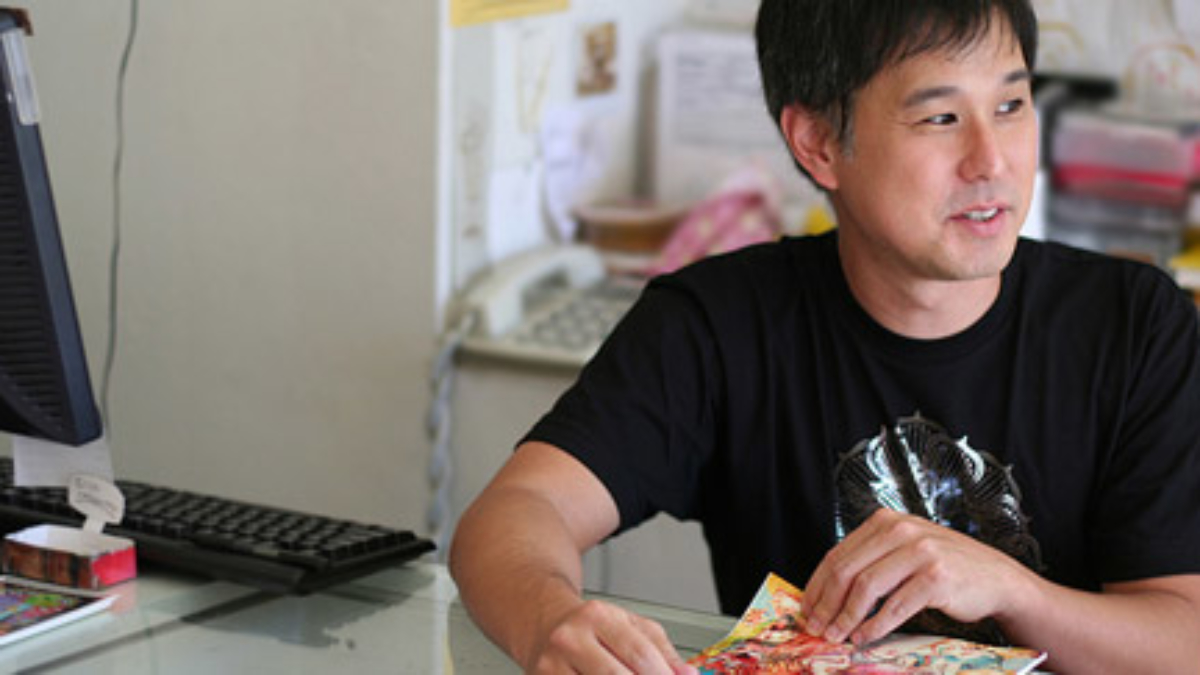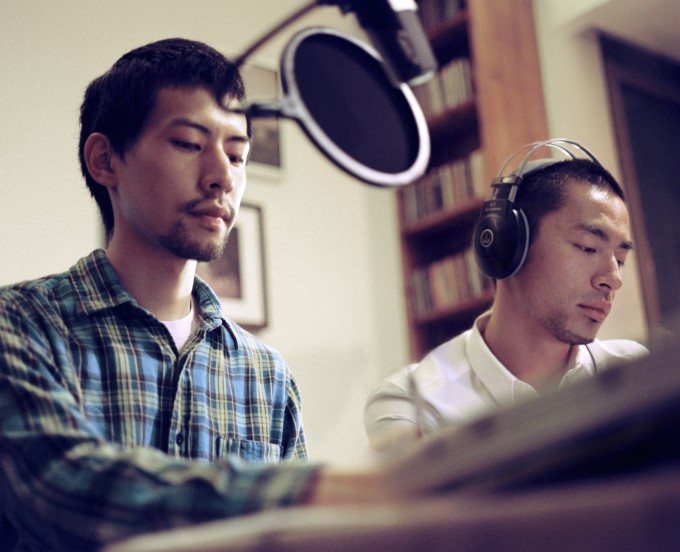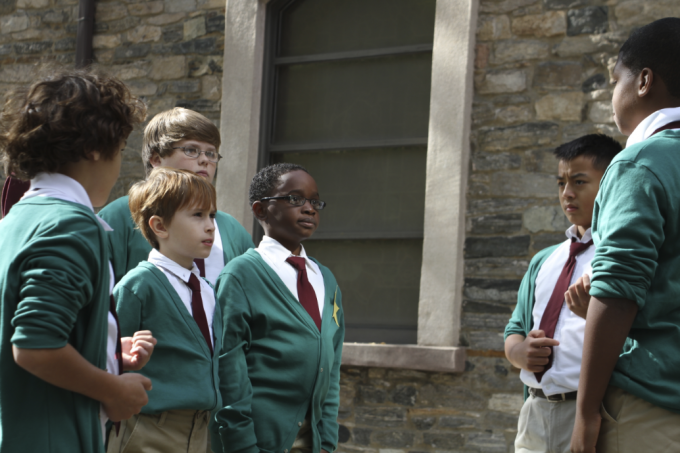In November, CineVue met and spoke with Eric Nakamura, the co-founder/owner of GIANT ROBOT, about his journey and trajectory as an artist and entrepreneur. We are honored to have him watch and choose his top picks within The Shorts Program from Asian CineVision’s 2012-2013 National Festival Tour. Out of 25+ short films, he chose MY SPIRITUAL MEDICINE by Liang Cheng, who won the AAIFF 2012 Excellence in Short Filmmaking Award; and COMRADES, directed by Paolo Bitanga and produced by a group of NYU student filmmakers at their startup company Mochi Productions (their webseries SUN AND THE ART OF DATING is featured within CineVue). Each film embodies a different spirit of ACV/AAIFF–nurturing young filmmakers, while showcasing an indie film that explores the definition of identity, culture, and love.
MY SPIRITUAL MEDICINE
Liang Cheng
The joy of seeing something that can be compared to the mystery of a Wong Kar Wei film is lacking in cinema today. It’s been nearly two decades since Chungking Express made Asians want to be cooler and romantic. The handheld cinematographer, Christopher Doyle gave it a look that marked a new era in filmmaking that inspired a generation – or did it? Where did all of this energy go? The new cool spawned into reality TV, comedies, horror and violence. The need to run from a dreamy lens happened because there could be space for only one Wong Kar Wei.
It’s nice to see the “energy” come back and smartly at the same time. My Spiritual Medicine is “merely” a short film that speaks to a generation that’s more savvy than ever. Two best friends, one Japanese living in China, work together, but at the same time, they run a pirate radio station as casual as the coolest music they play. They hold the power of influence in their casts, not knowing the reach or impact they can make. They speak to a silent audience unlike the quick fix of comments via any internet social network of today. It’s a throw back, much like the retro music they play. Perhaps they brighten the life of a shut in senior “Otaku Lady”.
Their friendship also marks their forging ahead in time where the relationship of China and Japan is going through a difficult transition. Surely filmed before the islands dispute erupted into protest, violence and flybys, this film speaks even louder with the current climate and situation.
One drunken evening, the tension of friendship goes a step further and it happens the same night as the 3.11 disaster occurs in Japan, altering the future of their moment. I couldn’t tell you the exact intention of the short film, yet it speaks about culture, friendship, dreams and reality. This was a short that had the weight of a feature film which is near impossible task.
COMRADES
Paolo Bitanga
Kids can be cruel. Their innocence at times stops at no mark. Rules can be as black and white as a cold doctor telling a patient about a life threatening illness. The facial mole you have that no one dares talk about? A kid will point that out as if it’s a friendly ladybug.
When a group of “warring” kids in a game of “Army” actually strike up a truce, a simple choice of siding with the once-enemy becomes something much larger: loyalty. The reality of friendships vs playtime are seemingly separate, yet with kids, everything can blend. Temptation of joining with the larger popular crowd over the friendship of a single neighborhood outcast happens to kids everywhere. What happens to the loner? How does the new popular kid hold out in the larger group? These situations are the building blocks of the classic movies like The Breakfast Club, Pretty in Pink and Some Kind of Wonderful.
In this short film scenario, it plays out quickly. Why is it that the general of the vanquished can’t join the new larger Army? His best friend and soldier mate is in a quandary: the choice is of friends in real life versus imaginary comrades. It’s all blending. While the choice becomes obvious, what do two dead soldiers do? Stay dead and create a new apocalypse!
Like what you see? Learn more about how you can bring these films to your respective school, organization, or workplace, through the ACV National Tour page.



